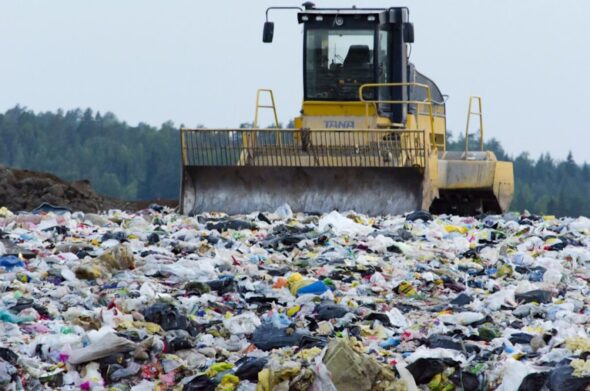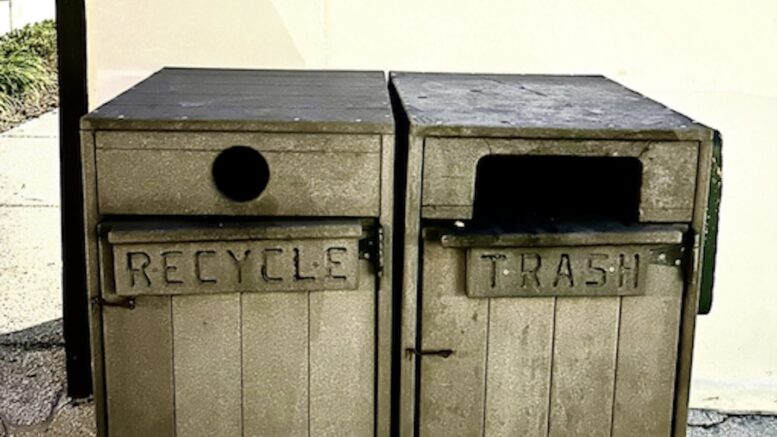By Zoe Sherman
There is a not-so-new invasive species crawling the streets of St. Augustine, slowly deteriorating the city’s beauty: litterbugs.
Florida is the nation’s third-highest generator of plastic waste. The state produces more plastic waste than the current recycling system can process, according to a 2023 study conducted by Florida International University.
With a ranking like that, Florida and its counties have some serious issues to confront. St. Augustine has several programs in place to help with the litter epidemic.
The “Get Hooked” anti-litter initiative was announced in Feb. of 2024, in hopes to educate, increase engagement and provide action items to prevent litter, according to St. Johns County news.
Flagler College has also made efforts against the waging war against its litterbugs. The Green Beans environmental club was founded in 2023, which is an action-based club that focuses their meeting times on cleanups, gardening, and more. The school also encourages students to engage in sustainable habits, such as recycling and donating old items.
Flagler College Senior Dominika Mierzwinska is the standing treasurer of the club. She opened up about the Green Beans experience while working towards a better environment for the community.
“Our club has started a campus-wide recycling initiative with recycling bins in every residence hall, and our club members are making sure recyclables are collected throughout each week and properly sent to the recycling center,” Mierzwinska said.
Along with creating a solution to the recycling issue on campus, the Green Beans have found a way to give back to the community.
“We’ve also created our own community garden located at the Sebastian House, where we give students the opportunity to learn how to garden, and contribute to donating what we harvest to Epic Cure, helping those in need in our community,” Mierzwinska said.
These initiatives are helping to make a difference here on our campus at Flagler College. Nonetheless, students like Mierzwinska cannot fight the battle alone.
Everyone caring about our environment and city is necessary for the success of the initiatives.

Litter is always a gruesome sight for everyone, especially among St. Augustine’s historic beauty and the surrounding natural setting.
From an everyday standpoint, the community had noticed litter is increasing and becoming a growing problem, which could be attributed to the growth and development of the city.
Everywhere you go, almost anywhere in the world, you see trash. One way to combat this problem is awareness. Showing our community why they should care is an important step when attempting to recruit individuals to help reduce littering in St. Augustine.
St. Augustine is a beautiful city that many people call home. It is also home to very rare wildlife and aquatic animals. It’s a very special place to live and should be treated as such.
The amount of litter collected in the state of Florida is alarming, and not sustainable. The most common piece of litter is tobacco waste, better known as cigarette butts. Due to their slow decomposition and toxic impact, they are extremely harmful to our environment. To remove, they are simply intended go in a general waste bin. If a resident were to take this action, they would be helping their natural environment, and protecting birds, turtles and fish.
By taking action in your community, campus or city, you would be helping to improve your environment, and the future of all of the living organisms in that area too.
There are many other ways to get involved and help work towards a healthy litter free environment.
“Students can make an effort to sort recyclable items out of their trash and put them into the recycling bins located in Flagler College’s residence halls. We also strongly encourage students to come to our weekly meetings, every Wednesday at 7 p.m. in our community garden,” Mierzwinska said.
Dr. Ed McGinley, a coastal environmental science professor at Flagler also gave insight on how to help improve your community.
“Simple things always go a long way. making better personal choices like avoiding single use plastics. We can do beach clean-ups and marina clean-ups, but we need to reduce the amount of plastic generated in the first place,” McGinley said.
Littering affects all of us. It affects the voiceless, harmless and defenseless. Every piece of litter picked up is one step closer to a healthier city.
Sources: Dominika Mierzwinska
Email mierzwinska564@flagler.edu for information about the Green Beans club
Dr. Ed McGinley : email :emcginley@flagler.edu




Be the first to comment on "Invasion of the Litterbugs"